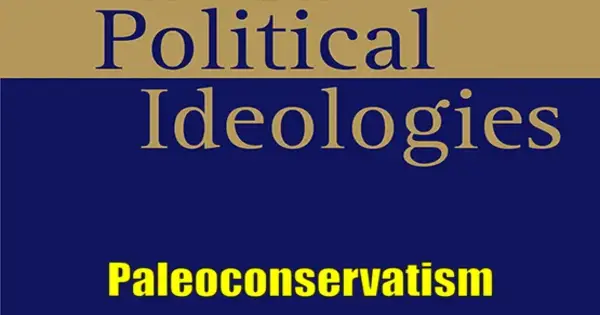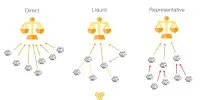Paleoconservatism is a political philosophy and subset of conservatism in the United States that emphasizes American nationalism, Christian ethics, regionalism, and traditionalist conservatism. Paleoconservatism’s concerns overlap with those of the Old Right, which opposed the New Deal in the 1930s and 1940s, as well as paleolibertarianism and right-wing populism.
The term “paleoconservatism” was coined in the 1980s to describe an extinct brand of conservatism exemplified by Robert Taft, the legendary isolationist who lost the Republican nomination to Dwight Eisenhower in 1952. It was known as the “Old Right” at the time.
Following the outbreak of the Vietnam War and a schism in American conservatism between interventionists and isolationists, the terms neoconservative and paleoconservative were coined. Those who supported the Vietnam War became known as neoconservatives (interventionists), as they represented a decisive break from the nationalist-isolationism that the traditionalist conservatives (isolationists) had previously subscribed to.
Paleoconservatives also tend to hold views historically associated with (but not limited to) the United States’ largely rural and agrarian regions. Respect for established social hierarchies and traditional gender roles, resentment of government interference in regional ways of life (e.g., for the purpose of enforcing civil rights), adherence to Christian moral principles, and skepticism of universal democracy and equality are examples of such perspectives. Paleoconservatives, for example, have vehemently opposed multiculturalism, identity politics, and the social ideal of diversity as grave threats to America’s ethnic and cultural identity since the 1980s.
According to the international relations scholar Michael Foley, “paleoconservatives press for restrictions on immigration, a rollback of multicultural programs and large-scale demographic change, the decentralization of federal policy, the restoration of controls upon free trade, a greater emphasis upon economic nationalism and non-interventionism in the conduct of American foreign policy”.
According to historian George Hawley, despite being influenced by paleoconservatism, Donald Trump is a right-wing nationalist and populist rather than a paleoconservative. Hawley also claims that while paleoconservatism is now an exhausted force in American politics, it was once the most serious right-wing threat to the mainstream conservative movement. Regardless of how Trump is classified, others see Trumpism as a continuation of, if not a rebranding of, paleoconservatism. According to this point of view, supporters of the old right did not fade away easily and continue to wield significant power in the Republican Party and throughout the country.
















